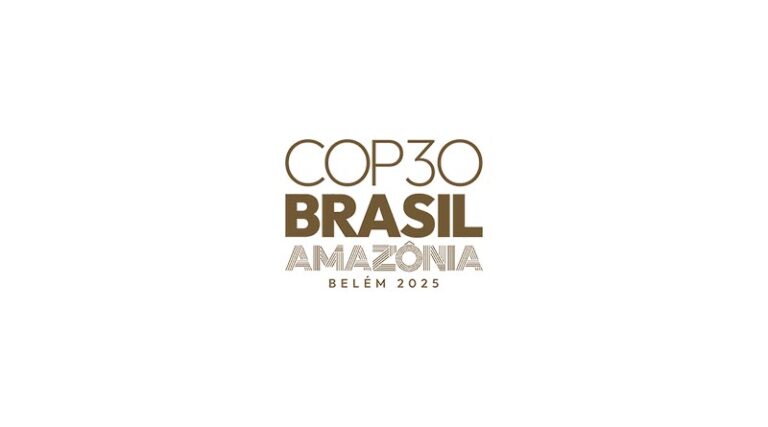
COP30 Opens in Belém with Strong Global Unity and Technology-Led Adaptation Agenda
12 November 2025, Belém: The 30th United Nations Climate Change Conference (COP30) opened in Belém with a decisive show of unity and action, marking the start of a new phase in global climate implementation. Delegates swiftly adopted the official COP30 agenda on the first day, signaling international consensus and renewed commitment to accelerate the Paris Agreement. Ambassador André Corrêa do Lago of Brazil was unanimously elected as the COP30 President, reinforcing the host nation’s leadership in driving inclusive, technology-led climate solutions.
Technology and Adaptation Take Center Stage
Day 1 of COP30 was defined by innovation, as world leaders and institutions showcased the power of digital tools and artificial intelligence (AI) to advance climate adaptation. The launch of the Green Digital Action Hub and the AI Climate Institute (AICI) marked a milestone in digital cooperation for the climate agenda, aiming to equip developing nations with AI-driven capabilities, open-source tools, and data for resilient growth.
At the Agricultural Innovation Showcase, Brazil, the UAE, and the Gates Foundation announced USD 2.8 billion (₹23,900 crore) in new funding commitments and unveiled the world’s first open-source AI model for agriculture. The initiative targets to empower 100 million farmers globally by 2028, strengthening food security and resilience in vulnerable regions.
Breakthroughs in Adaptation Finance and Loss & Damage
In a landmark move, the Fund for Responding to Loss and Damage (FRLD), created less than two years ago, launched its first USD 250 million call for proposals — a record-speed operationalization aimed at supporting countries most affected by climate change. Multilateral Development Banks (MDBs) also announced that their collective adaptation financing has doubled since 2019, reaching USD 26 billion in 2024 for low- and middle-income economies.
COP30 President André Corrêa do Lago lauded the early consensus, stating, “This agreement allows us to begin working intensively and to explain to the world why the new issues raised here truly matter.”
Ana Toni, CEO of COP30, emphasized the shift to tangible action, “Loss and Damage, only recently established at COP28, has already moved into implementation — this is a COP of delivery.”
Driving Climate Innovation and Nature-Based Solutions
New initiatives underscored the convergence of science, technology, and nature. The Nature’s Intelligence Studio, led by the University of Oxford’s TIDE Centre with INPA and the Development Bank of Latin America (CAF), was launched to promote bio-inspired innovation from biodiversity-rich regions like the Amazon. It will host an ideathon and unveil the Energy Atlas of Nature’s Innovations, an AI platform linking industrial energy challenges with biomimetic solutions.
Brazil’s Ministry of Management and Innovation, together with the Digital Public Goods Alliance, introduced a Climate Digital Public Infrastructure (DPI) Collection, featuring over 20 open-source tools for climate management across energy, agriculture, and disaster response.
The DPI for People and Planet Innovation Challenge, supported by JICA, the Gates Foundation, and others, awarded USD 100,000 each to five tech innovators — Trust Carbon, Kazam, Akvo, Rahat, and Circularise — for developing scalable digital solutions for climate resilience.
Action on Hunger, Poverty, and Agriculture
The Climate-Resilient Social Protection and Smallholder Agriculture Finance Partnership was launched to strengthen adaptive farming systems and social safety nets across Benin, Ethiopia, Kenya, Zambia, and the Dominican Republic. The initiative builds on the Belém Declaration on Hunger and Poverty, endorsed by 44 countries, and aligns donor portfolios to tackle food insecurity and climate vulnerability.
“Agricultural innovation is the engine of climate resilience,” said Martin van Nieuwkoop, Director of Agricultural Development at the Gates Foundation.
Global Mobilization and Youth Participation
The COP30 Green Zone officially opened as a collaborative space for civil society, institutions, and the private sector to share tangible solutions. The youth-led dialogue on “The Role of Popular Mobilization in Confronting the Climate Crisis” highlighted unprecedented youth engagement.
“This COP has the highest participation of children and young people in the past three years,” said Mikaelle Farias, COP30 Youth Climate Champion. “It reflects our collective strength and determination to act.”
Key Highlights from Day 1
- 437 million people now live with greater resilience under the Race to Resilience Campaign.
- USD 2.8 billion announced for farmer adaptation and resilience.
- USD 26 billion in adaptation finance delivered by MDBs in 2024.
- USD 250 million call for proposals from the Loss and Damage Fund.
- AI Climate Institute launched to empower developing nations with climate-focused AI tools.
- Green Digital Action Hub established as a Brazil-based legacy platform for sustainable technology.
- 44 countries endorsed the Belém Declaration on Hunger and Poverty.
Also Read: Maharashtra’s Sweet Lime Farmers Hit by 48°C Heat, Drought, and Unpaid Insurance Claims
📢 If You’re in Agriculture, Make Sure the Right People Hear Your Story.
From product launches to strategic announcements, Global Agriculture offers unmatched visibility across international agri-business markets. Connect with us at pr@global-agriculture.com to explore editorial and advertising opportunities that reach the right audience, worldwide.






